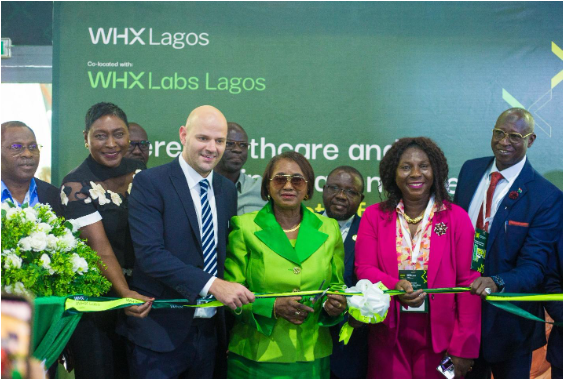Alex Otti: How Governor Is Rewriting Abia’s Narrative

In the fluid theatre of Nigerian politics—often riddled with unfulfilled promises and bureaucratic inertia—one figure in recent times has distinguished himself by the sheer clarity of his vision and velocity of action. That man is Dr. Alex Chioma Otti, Executive Governor of Abia State.
Barely two years into office, Otti has redefined governance in Abia, transforming it from a cautionary tale of misrule into a rising exemplar of infrastructural renewal, institutional reform, and social investment. His strides have not merely changed physical landscapes but have reshaped civic psychology. Hope, once a dwindling ember, now burns brightly in the hearts of Abians.
I. An Audacious Transformation: Key Achievements So Far
- Infrastructure Renaissance
Governor Otti’s infrastructural interventions are perhaps the most visible testimony of his leadership. Under his watch:
Port Harcourt Road in Aba, once a festering symbol of governmental failure, has been reconstructed to modern standards—restoring Aba’s reputation as the commercial nerve center of the Southeast.
The Umuahia–Uzuakoli–Abiriba Road has been completed, reconnecting the capital to the industrious Abiriba region, thereby accelerating rural-urban commerce and cohesion.
The Ossah Road expansion project—transforming it into a six-lane boulevard—is a bold metaphor for the widening vision of the state.
Over 140 roads have been constructed or rehabilitated across Abia, bringing long-forgotten communities into the orbit of state presence.
- Health Sector Reforms
The previously moribund Abia State University Teaching Hospital (ABSUTH) has not only been revived but reaccredited for medical training. A commendable 15% budgetary allocation to health reflects both political will and policy maturity. - Economic Diversification and Innovation
Dr. Otti’s administration has made economic diversification a core strategy. The launch of the Abia Industrial and Innovation Park (AIIP) and the agro-processing hub in Umunneochi symbolize an industrial awakening.
Investment inflows, totaling over $150 million, now place Abia among Nigeria’s top three most investor-friendly states, thanks in part to the formation of the Ease of Doing Business Council and the PPP Promotion Board.
- Educational and Institutional Revival
Through the “Reclaim Our Schools” initiative, Abia has embarked on a phased remodeling of 13 schools in each local government. Teachers’ retirement age has been extended, a policy also mirrored in the nursing sector—restoring dignity and stability to the workforce. - Restoration of Dignity through Payment of Arrears
Perhaps one of the most emotionally resonant moves by the Otti administration has been the systematic payment of long-neglected pension and salary arrears. Thousands of retirees and civil servants, once condemned to lives of quiet desperation, have been reabsorbed into the economy with their entitlements duly restored. It is not only governance—it is justice. - National Recognition
In a widely circulated interview with Arise TV’s Rufai Oseni, the media spotlighted these dramatic transformations—particularly in Aba—offering visual and impartial validation of the administration’s effectiveness.
II. Political Currency and the Question of Defection
If elections were held today, few would doubt the outcome: a landslide second term for Dr. Alex Otti. Such is the strength of his achievements and the goodwill he currently enjoys. However, this enviable position also demands caution.
In a political climate where defections have become fashionable—like changing cloaks in a masquerade festival—the temptation to shift party allegiance may arise. Yet, Governor Otti must remember: loyalty to the platform that brought him to power is loyalty to the people who voted on that platform. Political expediency must never eclipse political integrity.
III. The Elephant in the Room: A Call to Govern from Umuahia
While progress has surged in nearly every domain, one issue casts a constitutional and symbolic shadow over Governor Otti’s otherwise stellar scorecard: his continued operation from his country home in Nvosi, Isiala Ngwa South, instead of the legally designated state capital—Umuahia.
This choice, however well-intentioned, runs contrary to both the 1999 Constitution of the Federal Republic of Nigeria (Section 3[6] and the First Schedule) and the Abia State (Creation and Transitional Provisions) Law, which recognize Umuahia as the legitimate capital and seat of power.
IV. Why Umuahia Must Be the Seat of Government
- Legal and Constitutional Compliance
Operating from the capital is not an optional courtesy—it is a constitutional requirement. Anything less constitutes a breach of duty. - Institutional Synergy and Access
The clustering of ministries, departments, and agencies in Umuahia makes it the most functional hub for governance. Physical detachment from the capital fragments the state’s executive effectiveness. - Economic Revitalization of the Capital
Just as Aba has benefitted from gubernatorial proximity, so too will Umuahia flourish with a focused executive presence. The ripple effects on local economy, housing, transport, and services are predictable and profound. - National Perception and Historical Fidelity
The capital is the face of the state. It must not be obscured or diluted by alternative seats of power. To govern from elsewhere is to blur the administrative identity of Abia itself.
V. Conclusion: Let Umuahia Rise, Let Abia Flourish
Governor Alex Otti has carved his name into the granite of Abia’s political and developmental history. But legacies are not measured only in mileage of roads or megawatts of power—they are also anchored in legality and symbolism.
Umuahia is not just a name on a map. It is the seat of sovereignty, the heartbeat of governance, and the constitutional compass of the state. Governor Otti must return to it—physically and administratively—so that the great edifice of his achievement may stand on a foundation that is not only visible but also legitimate.
Govern wisely. Govern lawfully. Govern from the centre.
Charles Ude, Esq.
Abuja-based Legal Practitioner and Public Opinion Analyst
Email: [email protected]
Alex Otti: How Governor Is Rewriting Abia’s Narrative is first published on The Whistler Newspaper





